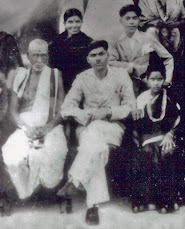FURTHER ABOUT AIM,
LEARNING AND WANTING
When you say that you have chosen a profession, and undertaken to learn it, there are some obligations.
Some teachers and institutions clearly state them, and expect them to be strictly carried out; some others do not clearly say so.
Irrespective of the above, and irrespective of your true aim and how you fulfill the obligations, the obligations themselves are usually the following:
- With regard to the learning of the profession, you agree to follow the instructions given for the lessons.
- You agree to willingly show obedience to those instructions and really attempt to implement them. This is the minimum.
The judgement with regard to the success or failure is not in your hands. That you will definitely succeed is not a necessary or usual part of the contract.
Your teacher undertakes to teach you something, for which the minimum requirement is obedience to the instructions for a certain length of time, at the end of which either party may break the contract. The teacher kicks you out or you quit.
However, how the obedience is carried out in practice depends on the aim. For example depending on the real aim in joining the professional school, one may really obey, one may pretend to obey, and one may grossly disobey to the extent permitted by the legal and philosophical loopholes in the contract.
If you meditate a little you will know that you are always constantly learning; learning something or the other. It is your body's fundamental property. So your body is all the time, ceaselessly learning. What you learn is a different matter.
So when you bemoan that your son is constantly failing at the college and is learning nothing, you are mistaken. He is definitely learning pretension and learning to live at other's expense and effort.
So if learning is unavoidable, one should learn the role of aim in this process.
One should also learn the subtle but powerful difference between
- I want to be a doctor.
- I want to learn how to be a doctor.
If a person says 'I want to be a doctor', he does not automatically mean that he wants to learn how to become one. He is willing to do anything, play any trick necessary for getting a degree without the least effort to learn the trade.
Similarly many patients say, "Doctor, I want to get cured", rarely do they say, "Doctor, I want to learn how to get cured". It is not their fault.
All this is to overemphasize what is commonly ignored: that learning is an inherent property of the body; that what is learnt is a function of the aim; that there is a real and a professed aim; that there is a world of difference between wanting to get something and wanting to learn how to get it; and that chaos results from a lack of aware understanding of these facts.
***











